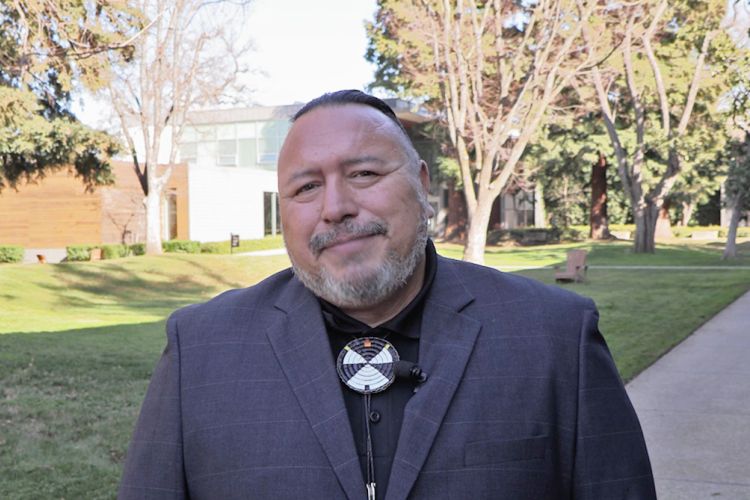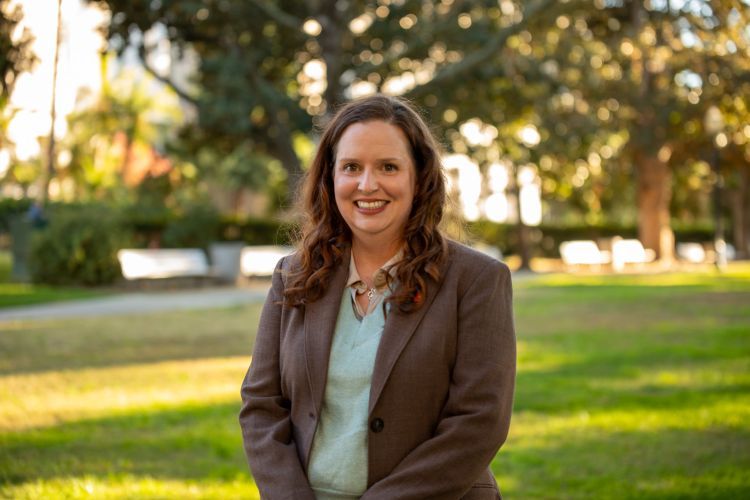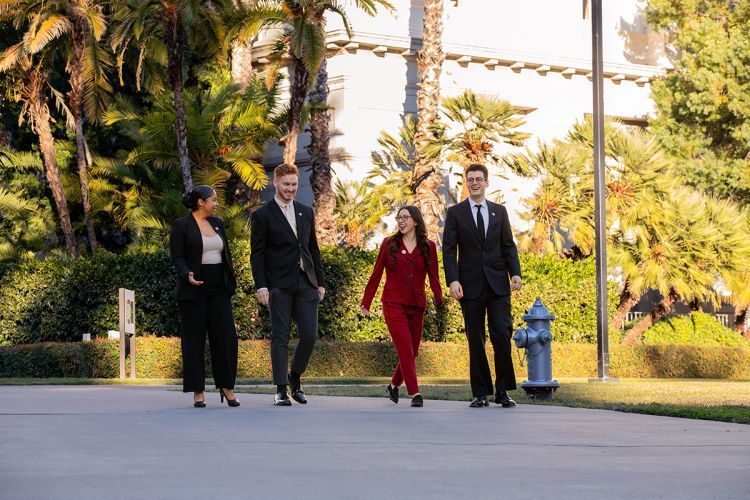Breadcrumb
Alumnus named Chief Justice of Oglala Sioux Tribe Supreme Court

The Hon. Jack Duran Jr., '02, was recently named Chief Justice of the Oglala Sioux Tribe Supreme Court in Pine Ridge, South Dakota.
The Hon. Jack Duran Jr., ’02, was recently named Chief Justice of the Oglala Sioux Tribe Supreme Court in Pine Ridge, South Dakota. Duran, who frequently lectures on topics related to federal Indian law and policy, is recognized nationwide for his expertise in federal Indian law.
Duran has served as a judge for the Buena Vista Rancheria and the Pinoleville Pomo Nation in California, and for the Pyramid Lake Paiute Tribe and the Lovelock Paiute Tribe in Nevada. He is affiliated with the Ysleta del Sur Pueblo tribe in El Paso, Texas and the Ketchikan Indian Community in Alaska.
McGeorge School of Law alumnus Thomas Weathers, ‘93, will serve on the Oglala Sioux Tribe Supreme Court alongside Duran as an Associate Justice. Weathers is Aleut and a member of the Qawalangin Tribe of Unalaska in Alaska. His practice focuses on Indian law and business law.
Duran had a nontraditional start to his legal career. He enrolled at the McGeorge School of Law at the age of 33, after working at United Parcel Service (UPS) for 15 years. Duran’s interest in law was the product of his involvement in labor issues at UPS. He enjoyed representing his fellow workers and providing a voice for coworkers.
During his time at McGeorge, Duran was very involved in the law school’s highly-ranked Trial Advocacy Program. Duran reports that the skills he learned in the program gave him an advantage when he entered the practice of law, allowing him to excel in the courtroom immediately. Duran explained that his feeling of comfort practicing law as a new attorney distinguished him from his peers from other law schools.
The late McGeorge Professor Joe Taylor, who directed the Trial Advocacy Program when Duran was a student, helped Duran in his studies. Duran learned how to understand the law and how to think about it.
“I call it ‘living in the gray,’” Duran said. “Because nothing is really black and white when it comes to law.”
Duran’s first job was with an insurance defense firm in the Sacramento area; he later moved to the California Department of Justice, where he served as Deputy Attorney General.
Afterwards, he transitioned to private practice at one of the nation’s largest Sacramento-based Native American law firms at the time. While there, Duran represented tribes, tribal entities, and individuals with tribal issues. Duran regularly represented clients before local, federal, and administrative agencies and before state, federal and tribal courts, and courts of appeal.
Duran transitioned to sole practitioner founding Duran Law Office, P.C in 2007. Duran started with a single tribal client and built his firm up from there. The firm handles both litigation activities and representation of both Native American and non-native clients.
In 2013, Duran was asked to consider being a judge for a former client. From there, Duran began to serve as a judge for several tribes and travel communities. Duran has built numerous tribal courts and obtained federal grant funding to support court operations.
“Tribal courts are more akin to an arbitration process where they’re more relaxed with the procedures,” Duran said, when comparing his experiences as a law clerk for the late Sacramento Superior Court Judge, Joe. S. Gray. “It made the transition from Superior Court to being a practicing judge and running my own court a smooth one.” Duran acknowledged that the court clerking opportunity was through McGeorge’s externship program.
Since he graduated from law school, Duran offers his time and wisdom as a mentor for first-year law students to assist the students with writing resumes and polishing their interview skills. Duran serves as a “sounding board” for them as they develop their knowledge and skillset. Duran advises students to not give up in their endeavors and to use all the resources they have, including professors “to get as much out of their education as possible.”
He lets them know that their persistence will pay off; “The more cases you read, the more you understand,” Duran said.
Duran keeps in contact with his McGeorge School of Law classmates. Some have even worked at his firm.
“I trust their work and know that they’re going to do a good job for their clients,” Duran said.
For more information about McGeorge School of Law, visit law.pacific.edu/law.
Media Contact: Ashley Golledge, Director of Marketing and Communications, agolledge@pacific.edu, 916.325.4687.





